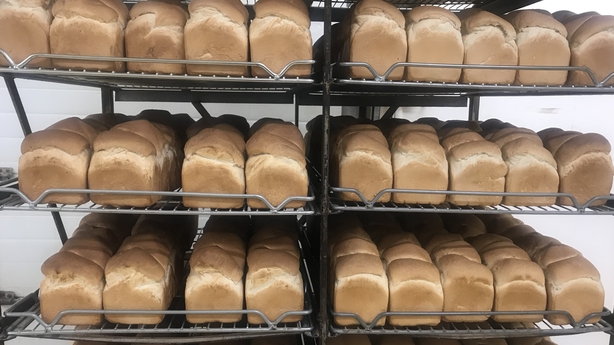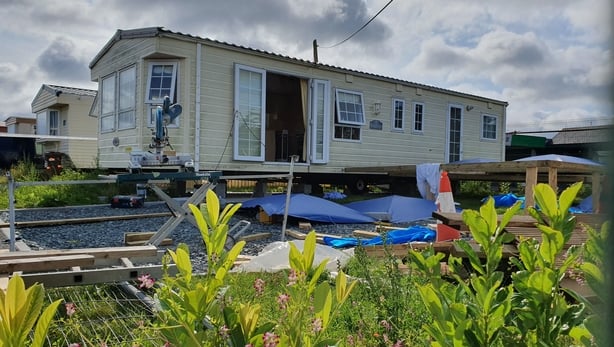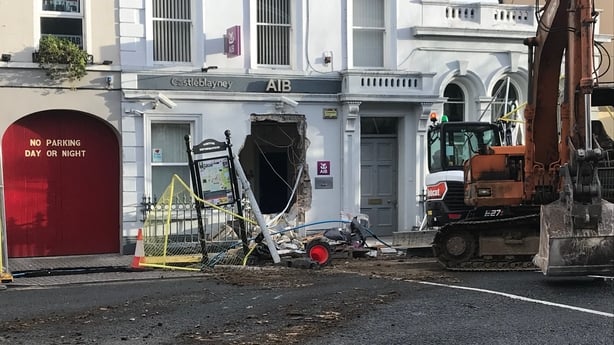Monaghan's Patrick Kavanagh wrote that "it is impossible to read the daily press without being diverted from reality. You are full of enthusiasm for the eternal verities - life is worth living, and then out of sinful curiosity you open a newspaper. You are disillusioned and wrecked".
In 2019, it was hard not to feel disillusioned or wrecked but journalists have to tell stories, however depressing, disturbing and shocking they are.
In the northeast, the brutal attack on Quinn Industrial Holdings Director Kevin Lunney in September was one of those stories.
The businessman was brought across the border to Cavan and tortured in a two-and-a-half hour ordeal. Later that evening, he was dumped on the roadside in Cornafean.
Recalling the ordeal in an interview on BBC's Spotlight, Mr Lunney feared he would never see his wife and children again.

Earlier this month, four men were charged in connection with the attack. Alan O'Brien, 38, of Shelmalier Road, East Wall, Dublin; Darren Redmond, 25, of Calendon Road, East Wall, Dublin and 66-year-old Luke O'Reilly of Mullahoran Lower, Kilcogy, Co Cavan were charged with false imprisonment and assault causing harm.
A fourth man, who cannot be identified after the judge granted a reporting restriction, faces the same charges.
An extensive garda team based in Co Cavan continues to work on the case alongside the PSNI. Mr Lunney has returned to work and continues to recover.
Of course 2019 was a year where Brexit dominated the headlines. Nowhere will its impact be felt more, than along the border.
Deadline after deadline has now passed, but for people living in counties Cavan, Monaghan and Louth it is a difficult time. As they try to plan for a post-Brexit scenario, the uncertainty has only served to heighten anxieties.
This month, a report by researchers at Queen's University in Belfast and the Irish Central Border Area Network found that those surveyed described how Brexit already had an economic and social impact on their lives and future plans, and had put off making financial or business decisions because of Brexit.
The first phase of the research was carried out before the Brexit deadline on 31 October, when the risk of a no-deal Brexit appeared most likely, while the second phase was conducted after the British Prime Minister Boris Johnson concluded his revised Withdrawal Agreement with the EU and Britain's withdrawal deadline had been extended until the end of January.
Many felt a "related sense of insecurity", which was "exacerbated by ongoing speculation about what the future for the border might be".
In October, we spoke to Brian Cully, who runs a family-owned bakery in Arva, Co Cavan. He travels over and back the border every day delivering bread. He is just one of thousands of people, including delivery drivers and farmers, who traverse the border on a daily basis.
He told RTÉ News that the price of a slice pan could increase by around €0.15 because of tariffs on flour. Most Irish bakers use flour from the north and 230,000 tonnes are imported every year.

It might be an unlikely casualty of Brexit, but it is a simple example of how it will impact everyday life for a business operating in Ireland.
With the 31 January deadline looming large, an end - or at least the start of the end - may finally be in sight.
This year also saw the first killing in the ongoing Drogheda feud. Keith Brannigan was shot dead as he carried out work at the Ashling caravan park in Clogherhead in August.
Gardaí believe he was targeted simply because of his friendship with one of the main players in the feud.
Two women, one of whom was pregnant, had a lucky escape after their cars were hit by stray bullets.

In October, the bitter feud claimed its second life. Richie Carberry, 39, was shot dead as he arrived back at his home in Bettystown, Co Meath.
Carberry, originally from Coolock was seen as a major player in the supply of drugs and weapons in the north east, even though he only had minor convictions.
The dispute has seen more than 70 incidents since an attack that left one of the gang members paralysed in July 2018. Tension had been simmering for months between two rivals factions based in Drogheda who were dealing drugs in Louth and Meath.
Gardaí are making progress and as part of Operation Stratus dozens of arrests have been made and well over 100 searches have taken place. In November, detectives also made a significant seizure of drugs and guns including handguns, a magazine and ammunition.
Chief Superintendent Christy Mangan in Louth has been to the forefront of this operation and has warned that there will be no let up in the garda operation because of the "mayhem and misery" criminals have inflicted on the people of Drogheda.
The question is, when will this violence end?
Other stories, including the dozens of ATM robberies in the region and Monaghan link to the Essex trailer deaths, have really put a spotlight on the northeast this year.

As we face into a general election at some point in 2020, there is no doubt that concerns over ongoing criminality along the border and garda resources will feature high on the agenda of voters in the area.
However, it is not all doom and gloom and across the region, huge work is being done to promote the north east as a place to live and work in. The M1 corridor project was launched earlier this year.
The cross-border business led initiative aims to drive international investment into the region by highlighting the advantages it has over other areas, primarily Dublin and Belfast.
With a population of 2.25 million people within 60 minutes of Dundalk or Drogheda, and tens of thousands of them commuting outside the region every day, it is hoped further investment and jobs will come in 2020.
It was also a hugely successful year for a Meath-based financial services company Prepaid Financial Services owned by Noel and Valerie Moran.
In September, the company said it would take on another 50 people as part of a multimillion-euro investment in a new building in Trim, Co Meath. Then in December, the company announced that it had been bought by Australia's EML Payments in a deal worth €327 million.
The company said the plans to expand would continue following the takeover and suggested that the deal may even lead to further investment in Ireland in the future.
As we come towards the end of 2019 and my first year in the job as North East Correspondent, I'm already looking forward to another year, whatever it brings.
Brexit and a general election will dominate the beginning of the year, but there are lots more stories to tell. To those who have allowed me into their homes and businesses to share their stories this year, thank you.


